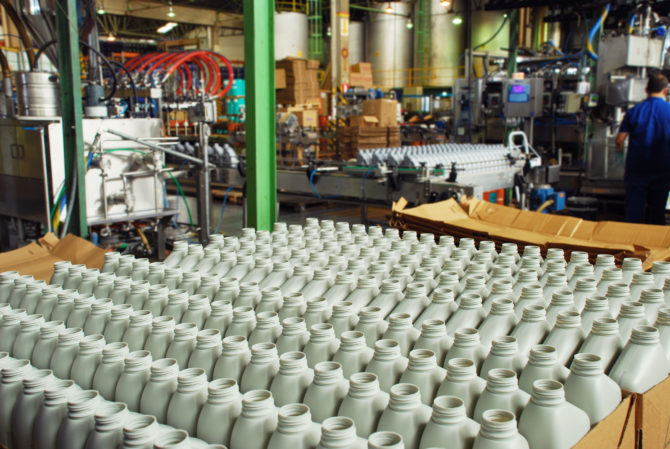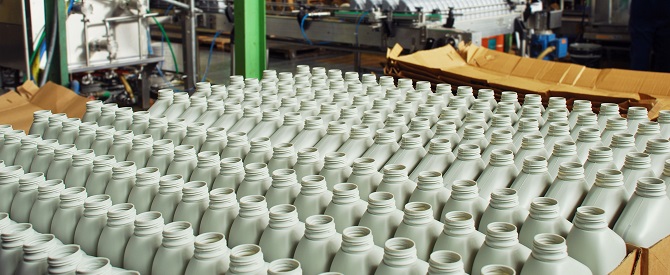The Independent Lubricant Manufacturers Association is reaching out to members and governments to inform them that lube blenders are considered essential or life-sustaining and may continue physical operations under stay-at-home orders issued to contain the coronavirus pandemic.
Thirty-seven states and the District of Columbia have issued such orders since Pennsylvania and California governors did so on March 19.
“We encouraged our members to talk to both state and local governments, and to explain why they are essential businesses,” ILMA CEO Holly Alfano told Lube Report.
ILMA analyzed guidance issued in mid-March by the Department of Homeland Security’s Cybersecurity and Infrastructure Security Agency. The guidance is an advisory opinion about what constitutes critical infrastructure under President Donald Trump’s Coronavirus Guidelines, the association determined.
According to the association, CISA initially identified 16 sectors with essential critical infrastructure workers. Lubricant manufacturing falls under the “critical manufacturing” sector where workers are deemed necessary for production of materials needed for medical supply chains, transportation, energy, communications, food and agriculture, chemical manufacturing, nuclear facilities, the operation of dams, water and wastewater treatment, emergency services and the defense industrial base.
ILMA determined that its members’ facilities were also covered under the “chemical sector” in the CISA guidance, because they manufacturer, store, use and transport chemicals upon which other critical infrastructures rely. The association also emphasized lubricant’s role in supporting critical sectors such as emergency services and the transportation sector.
“For the most part, I think local governments and state governments have understood that our members need to continue operating. I haven’t heard of any issues,” Alfano said. “I have heard some issues where employees are concerned about coming to work and have asked a lot of questions.” The association has posted a document on its website to answer common questions about workplace issues related to Covid-19, the disease caused by the virus.
“Members I’ve talked to are not having any problems getting supply,” she said. “They are getting orders from customers. There seems to be a lot of activity going on, and they haven’t seen significant drops in business so far.”
ILMA noted in a statement that its members blend, compound and sell more than 25 percent of the automotive lubricants consumed in the United States and nearly 75 percent of the metalworking fluids. “In the current public health emergency, any necessary vehicles whether automobiles to transport healthcare workers, emergency response vehicles to tend to people or trucks to deliver foods to grocery stores – depend on lubricants to operate,” the association stated. “Further, agricultural equipment to produce foods and machines to make emergency healthcare items all need lubricants for their operations.”
The association said it expects more states to issue stay-at-home orders, and it asked the National Governors Association National Association of Countries and the U.S. Conference of Mayors to follow a uniform approach in emergency declarations.
Soon after receiving ILMA’s recommendation for communicating with government officials, lubricant manufacturer Allegheny Petroleum learned that its home state of Pennsylvania categorized the company under the “petroleum and coal products manufacturing” subsector on its posted list of “life sustaining businesses” that may continue physical operations.
Allegheny Petroleum President Barbara Kudis said she informed employees the company will disseminate information to help them remain safe and not shut down the business. “But everybody needs to take it upon themselves, too, to do what’s right and pay attention to things,” she said. “We’re going to do what we can and try to regulate it. So we need everybody here and at all of our plants to take it as their own responsibility, as well, to do what’s right.”
“We’ve had no [raw material supply] issues on the lubricants side,” Allegheny Petroleum CEO Jim Kudis told Lube Report. “Drums, totes, additives, base oils. They’ve all been good.”
Kudis said the company’s number one concern is trying to comply with all requirements necessary to ensure the safety of its employees. “The next thing is worrying about economics,” he added.
He said that while January and February were steady months for sales, April will likely be more of a concern. Stay-at-home orders lead to less driving, less gasoline sold and less motor oil being changed, he noted. “The car manufacturers have slowed down, and we provide products to steel mills and aluminum companies, and we can see a little bit of slowdown going on there,” Kudis said. “So we don’t know how far back and how deep it’s going to go to all the businesses that we supply, and that’s the question. I think if you talked to any lubricant manufacturing company, the motor oil part of it has probably really slowed down, and they just don’t know what else is going to happen.”
Norwell, Massachusetts-based Clean Harbors is the parent company of Safety-Kleen. “Given the nature of our company – including waste hauling, emergency response, biohazards handling, rerefining, etc. – Clean Harbors and all of its subsidiaries, including Safety-Kleen, have been deemed as essential services,” Jim Buckley, senior vice president of Clean Harbors, told Lube Report in an emailed statement. “We continue to maintain our normal operations, even in states or regions with shelter-in-place orders, including California, Pennsylvania and others. Currently that includes our Safety-Kleen branches, waste oil terminals and rerefineries, as well as our blending and packaging operations.”
Buckley noted that all of the company’s back office, sales and office-based personnel are working from home as much as possible. “For our personnel that are out in the field providing services to customers or in our plant operations, we are following strict protocols using best practices recommended by the Centers for Disease Control here in the United States and the Public Health Agency of Canada for our operations up north,” he added.

Lube bottles by a filling line at a lubricant blending plant. Lubricant blending plants in the United States are allowed to continue operations in the many states that have put stay-at-home orders in because of the coronavirus pandemic.
